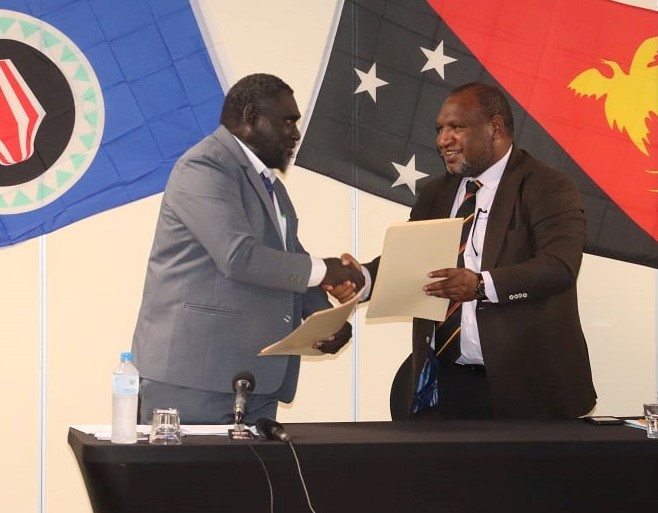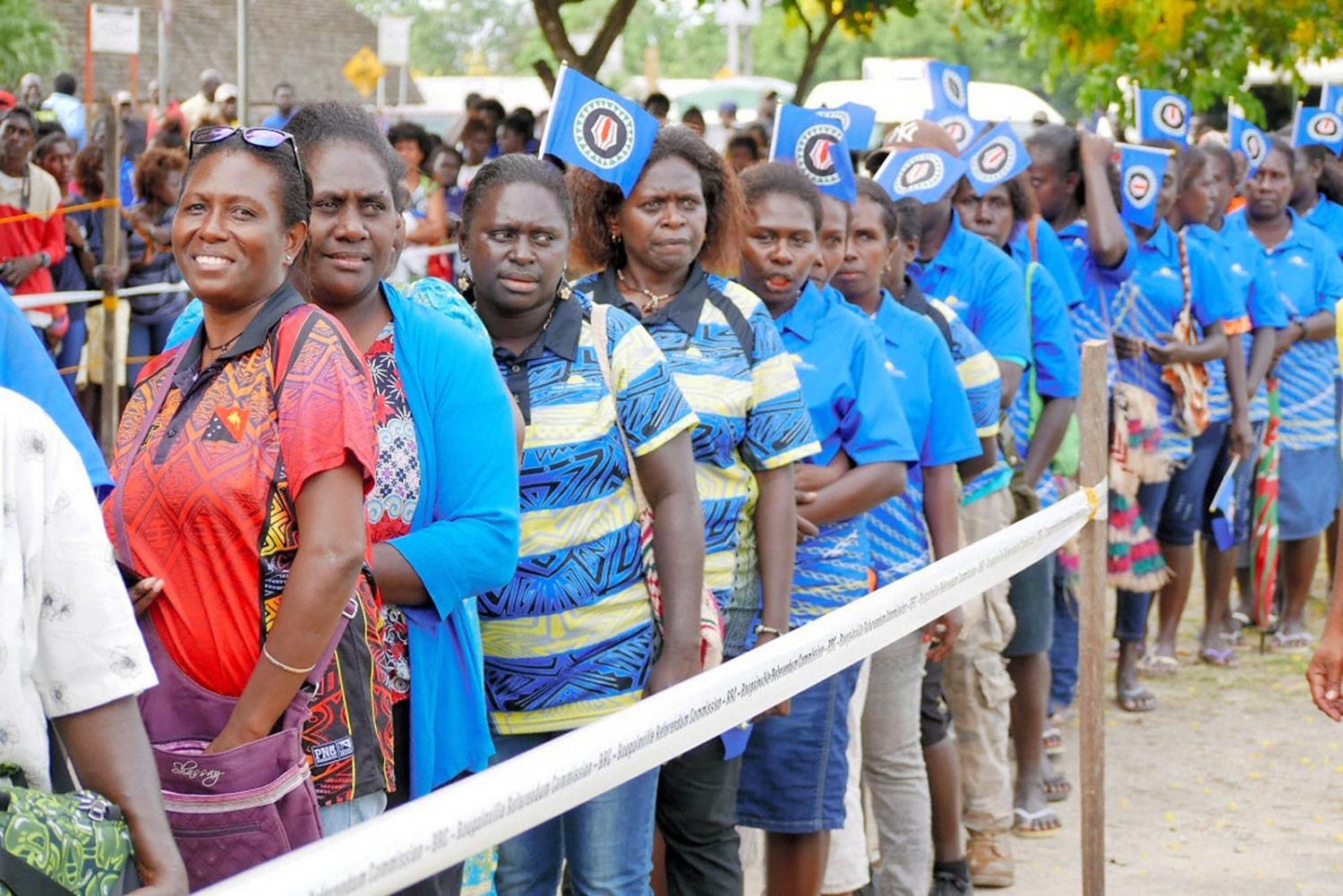It has been more than three years since the people of Bougainville voted to decide their political future. The 2019 referendum, that saw 97.7 per cent of voters express a desire for independence over continued autonomy within Papua New Guinea, was constitutionally mandated, conducted to international standards, but left to the PNG national government to endorse. The outcome of this long process remains uncertain, and political tensions are rising.
The 2001 Bougainville Peace Agreement formally ended a bitter ten-year conflict, establishing the Autonomous Bougainville Government (ABG) and setting out the path to the referendum. Under the peace deal and the terms of PNG’s National Constitution, the two governments must consult on the referendum result. A key step in those consultations, reflected in a document known as the “Era Kone Covenant”, was signed by PNG Prime Minister James Marape and ABG President Ishmael Toroama in April last year.
The covenant contains two key commitments. First, that the referendum result will be tabled in the PNG parliament, as required by Section 342 of the constitution, by no later than 2023; and second, that implementation of the decision made shall commence no earlier than 2025 and no later than 2027.
This month, PNG’s Minister for Bougainville Affairs Manasseh Makiba addressed parliament on next steps. In his statement, Makiba noted that in line with the Era Kone Covenant he intended to table the result of the referendum and the report on the consultations later this year.
But he also highlighted sticking points. Makiba affirmed the PNG government’s view that a decision on Bougainville’s independence could only be made by parliament. While noting differences in interpretation between the ABG and the PNG government on the term “ratification” (the word used in the 2001 Bougainville Peace Agreement, which states “The outcome of the referendum will be subject to ratification (final decision making authority) of the National Parliament”), Makiba advised that in accordance with the constitution, the only way that the parliament could resolve the question of Bougainville’s future political status would be by way of a vote.
Section 342 of the constitution may be clear with respect to the requirement to consult and table the result of the referendum in the parliament. But it lacks any direction with respect to how this should occur. And it is here that the Minister has proposed the use of sessional orders that shall be decided upon by the parliament itself.
In practical terms, this means that parliament will have to first agree on the procedure to be followed. Once this has happened, then the sessional order will be applied as the procedure to guide the parliament in taking a vote.
In noting the constitutional significance of the matter, Makiba indicated he will propose that the sessional order prescribe that the parliament resolve the matter of Bougainville’s independence by a two-thirds majority vote, to be taken only after at least three meetings of parliament.* This means in practical terms that a final decision on Bougainville independence is not likely to be made before the end of this year.

And another hurdle remains. In concluding his statement, Makiba noted that regardless of what decision is made, there will be a need to review and amend PNG’s constitution, either to accommodate Bougainville independence or reflect other arrangements that may be put in place. This itself will be a complex process and will involve continued inter-government dialogue.
Missing in all of this is what independence will mean in practice should parliament agree in line with the referendum result that Bougainville should break away. While statehood will grant Bougainville access to the international community, many of the institutions required to sustain a functioning state have yet to be realised on the ground.
As Makiba noted, this is where implementation of the “Sharp Agreement”, signed by the two governments to accelerate the transfer of powers and functions to the ABG, must be given greater priority. To date, the transfer of powers has been slow and inadequate. The autonomy provisions of the 2001 Bougainville Peace Agreement, which have largely remained unrealised in institutional terms, should be the foundation on which any new Bougainville state would be formed.
For now, the political dialogue process must continue. Parliament will soon deliberate, and a decision on Bougainville’s future will be made. But the steps required for a future independent state are varied, and complex in their nature and form, and themselves open to continued debate.
What is clear is that there must be more clarity about the process and practicalities of ratification for the referendum result, along with a concerted effort to transfer powers from the national government to the ABG, so that whatever form a future political settlement may take, PNG and Bougainville can embrace the opportunities ahead.
* This article has been updated to note that the vote would only be taken after at least three meetings of parliament, rather than on three separate sittings as was originally stated.

